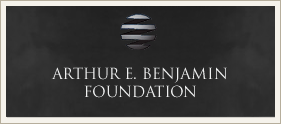Animal advocate’s passion takes him to the end of the earth.
By Emily J. Minor
Most people say they love animals for their cuddliness, their cuteness, and the fact that loving animals is simply politically correct. But for philanthropist, animal rights advocate and American Dog Rescue founder Arthur E. Benjamin, the devotion goes deeper. Much deeper.
Benjamin loves animals for their personal stories, for the lives they’ve led, for the lives he knows they could lead. Whether it’s the frightened, bedraggled Hurricane Katrina kittens that were rescued and given real homes, or the grossly abused circus lion moved to a new beginning atop a Tennessee mountain, Benjamin’s caring intuition for animals knows no boundaries.
Recently, he went to the ends of the earth to prove it.
For years, Benjamin has been schooling himself on animal’s rights, and helping through the Arthur E. Benjamin Foundation bringing awareness to zoo elephants forgotten in captivity, shelter dogs scheduled to be put down. Injured great blue herons restored and returned to flight.
When his beloved wife, Gail, died in 2004, he and Buddy, the family dog, teamed up to do even more. They started American Dog Rescue – a 501C charity that saves dogs and makes sure they have homes.
But even this Delray Beach entrepreneur – who each year raises as much as he can and donates hundreds of thousands of dollars under both charities – agrees that his recent trip to the middle of nowhere was something extraordinary, even for him.
“I can tell you, I’ve seen a lot in my life,” he says, “But this was one of the most wonderful experiences I have ever had.”
Canadian government still allows the hunting of seal pups – as barbaric as it sounds, and it’s barbaric. Clubbed to death before they can even swim, these pups are being killed for their coats, and it’s being done in record numbers. Between the dwindling ice cover, brought on by warmer climates, to the continuing hunt of these newborns, more than 300,000 seal pups die each year.
And that’s why Benjamin did what he did.
One week not all that long ago, the winter weather around him swirling, his flights delayed, himself a bit under the weather with a touch of something, Benjamin made his way to the middle of nowhere, about 100 miles off of the northeastern coast of Canada.
It took him 22 hours to get there: Three commercial flights, then a 90-minute helicopter ride. (They were able to land on five inches of ice.) Then a long walk, atop thinning ice covers, to the point where the pups were being born.
“I was determined to get there, because there’s only one time a year that they give birth,” he says.
Once there, he heard the most extraordinary sounds. Benjamin has listened to the voices of animals before – dogs and cats, horses and birds, lions and elephants.
But this was special.
“If you close your eyes, it’s like you’re in a human nursery,” he says. “The pups sound like babies.” And the surroundings?
“It’s white and flat as far as you can see,” he says. “It’s like you’re on the moon.”
This time of year, though, the ice permitting, hundreds of thousands of these baby seal pups – the very ones Benjamin reached out and touched on his recent excursion – are brutally clubbed to death by fishermen wielding nothing more sophisticated than a muscled arm and a weighted piece of wood.
The United States Humane Society, which supports the boycott of Canadian fish products until Canada outlaws seal hunting, says the slaughter is so archaic “most people are shocked that this is even legal.”
But it is, for now.
Now that he’s home, there’s a new collection of images Benjamin can’t get out of his mind: Those seal pup faces; the dark eyes and the whiskered black nose pushing along the tundra.
So young, and so beautiful. He knows they deserve a life.
Every animal does.
“My heart is bigger than I am,” he says simply. “I will do anything.”
 A Call to the Wild
A Call to the Wild 
 In Service of Others
In Service of Others Get Involved and Give Back
Get Involved and Give Back 

 Archives
Archives



 Search
Search 